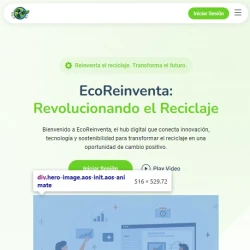
Baterías
A team of researchers from the National Autonomous University of Mexico (UNAM) has made significant progress in the fight against environmental pollution by developing batteries made from recycled plastics. The main objective of this pioneering project is to mitigate the accumulation of plastics in the environment and reduce the generation of microplastics that contaminate soils, rivers and oceans.
The innovative work is led by Jorge Oliva Uc, researcher at the UNAM Center for Applied Physics and Advanced Technology, based in Juriquilla, Querétaro. After two years of research, the team has identified a sustainable solution to reuse single-use plastics, such as mayonnaise and ketchup sachets, transforming them into essential components of rechargeable batteries that could replace traditional AA and AAA batteries.
Flexible plastics: the perfect ally
During the research process, the scientists analyzed various types of plastics, including those used in yogurt, shampoo and detergent containers. However, they concluded that small flexible food sachets are ideal for the manufacture of these batteries. Unlike other materials, these sachets do not require additional treatments to be molded, which simplifies the production process and makes it more efficient.
A sustainable and functional alternative
The proposal not only offers a solution to reuse a type of plastic that usually ends up in landfills or bodies of water, but also poses a viable alternative to the traditional battery market. According to the researchers, these recycled batteries are capable of offering competitive performance, which reinforces their potential to become a widely accepted option.
Environmental impact and future of the project
Innovation is not limited to the development of batteries. This project contributes directly to the reduction of plastic waste in the environment, facing one of the greatest environmental challenges today: microplastic pollution. In addition, it promotes the circular economy by revaluing plastic waste, giving it a second use in a technological context.
The UNAM team is working on optimizing the design and plans to take this technology to a scalable production stage, with the purpose of making it accessible to the global market. If successful, this breakthrough would not only represent a change in the way we manage plastic waste, but would also set a new standard for the manufacture of eco-friendly batteries.
With initiatives like this, UNAM reaffirms its commitment to scientific research aimed at sustainability and the well-being of the planet, consolidating itself as a benchmark in technological innovation with social and environmental impact.


